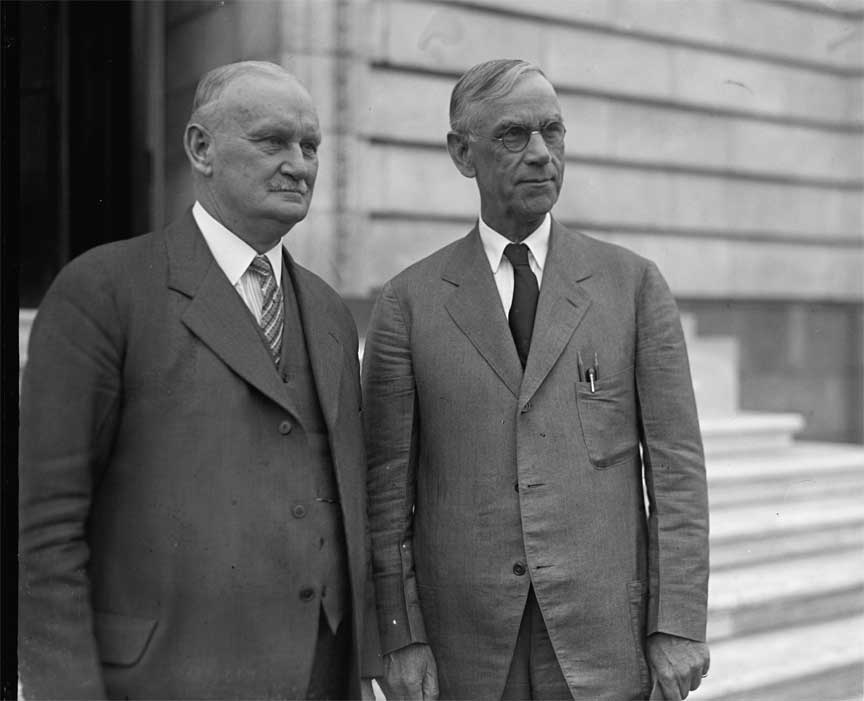Hawley-Smoot Tariff

Reed Smoot and Willis C Hawley
The Hawley-Smoot Tariff raised tariffs to their highest levels in US history. Its proponents, including President Hoover, believed that the high tariffs would help American industry and agriculture in a time of severe depression. In fact, the opposite occurred. As the United States was a net exporter of both agricultural goods and industrial products, the ensuing worldwide tariff war simply lengthened the depression.
The 1920’s were a period of rapid increase in productivity. As a result, American factories were producing more goods that were needed. This was one of the causes of the depression. President Hoover had run on a platform that had promised relief to farmers who since the end of World War I had been struggling with low prices. Hoover vowed to increase tariff on imported agriculture at the same time he wanted to decrease the tariffs on industrial products.
With the advent of the depression, the goal became trying to save American jobs. Many in Congress believed the way to do so was to increase tariffs and protect American goods. Reed Smoot was a Republican Senator from Utah and Chairman of the powerful Senate Finance Committee, while Willis C Hawley was the Republican chairman of the House Ways and Means Committee. Together they sponsored the Tariff bill of 1930 which became known as the Smoot-Hawley Tariff Act. It based on the House on May 28, 1929, by 284 -147 while the Senate passed it on March 24, 1930, by 53-31. Leading economist and business leaders begged Hoover not to sign it. 1,028 economist presented him with a petition and while both Henry Ford and the CEO of J.P. Morgan made personal pleas not to sign. Hoover gave in to the wishes of his party and signed it.
Once the tariff went into effect, other countries retaliated. The United States at the time exported much more industrial goods than it imported as a result as duties went up the depression worsened. Almost all economist agree that the passage of the Smoot Hawley Tariffs worsened the Great Depression,
 >
>